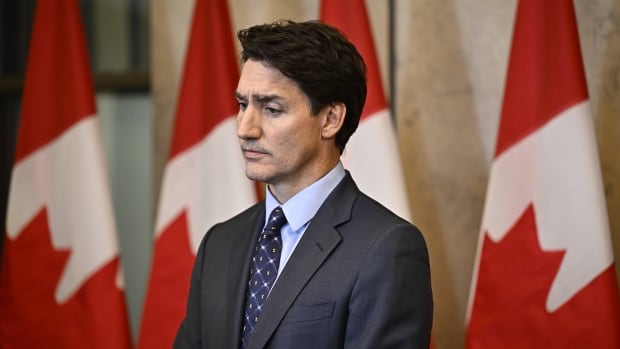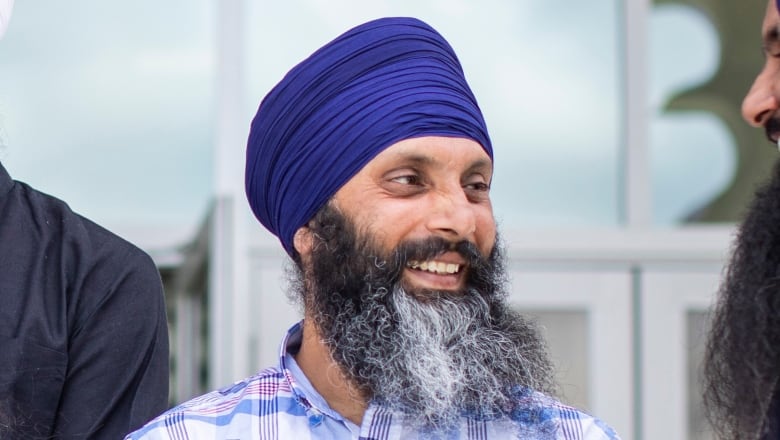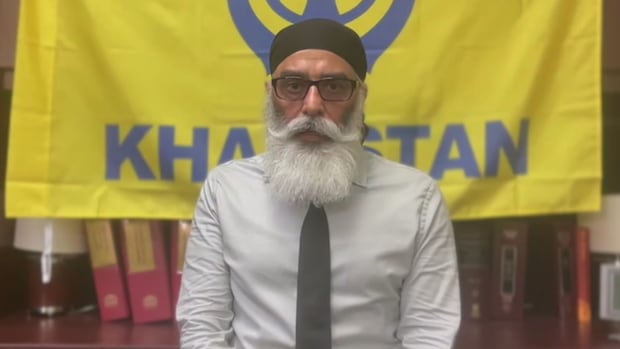
The six senior diplomats Ottawa has ordered out of the country may not be the last Indian officials to be expelled as Canadian police investigate what they allege is the involvement of agents of the Indian government in “widespread violence” here, sources close to the investigation have told CBC News.
Those sources say a support network for India’s clandestine operations remains largely in place in Canada, although they think it’s likely that some members of that network will now depart voluntarily — and quietly — rather than risk arrest.
Sources have described India’s operation in Canada as multi-layered and multi-faceted, involving many people playing different roles — some willingly, some under pressure from Indian diplomats and their proxies.
Indian diplomats both engaged in covert activities themselves and recruited others to help them, sources allege.
Since 1955, India has required all nationals who become citizens of foreign countries to surrender their Indian citizenship. That means many first-, second- and third-generation Indo-Canadians require what is called an OCI (Overseas Citizen of India) visa in order to visit India.
Indian diplomats and consular officials used their discretion to grant or withhold such visas to pressure people to conduct surveillance or become informants, sources told CBC News.
A ‘small part’ of a much larger operation
One person close to the investigation described the killing of Hardeep Singh Nijjar — the Canadian Sikh activist who was killed in Surrey, B.C. last year — as “only a small part” of a much larger operation, although it was both a serious crime and an affront to Canadian sovereignty.
Sources told CBC News they believe one key goal of the Indian government operation is to convince Indo-Canadians that violence and lawlessness is widespread in Canada. The idea, they said, is to bolster the Indian government’s claim that Canada has put Indo-Canadians in danger by failing for decades to crack down on Sikh separatists and criminal activity.
Sources close to the investigation allege individuals with links to the Indian government have made extortion demands of Indo-Canadians for sums so exorbitant, they appear to be intended merely to offer cover for subsequent acts of violence, including drive-by shootings and arson.

While the RCMP’s investigation of India’s alleged covert operations in Canada began before Nijjar was killed, it received greater priority and more resources after the Sikh leader was gunned down in his pickup truck at a parking lot exit in the Guru Nanak Sikh Gurdwara in Surrey, B.C. on June 18, 2023.
The Mounties already suspected Indian government involvement in a murder the previous year, and quickly found links between the Nijjar case and Indian government officials, sources said.
They said that electronic intercepts of communications among Indian government and intelligence officials in India, and Indian diplomats in Canada, soon confirmed that the killing had been directed from senior levels of the Indian government.
Sources close to the investigation, and Canadian government sources, have told CBC News they don’t believe that such a risky operation — one involving not only India’s intelligence service, the Research and Analysis Wing (RAW), but also its foreign service — would proceed without approval from the very top of India’s government.
India claims Ottawa has yet to show it evidence
When the U.S. government accused an Indian government employee of involvement in a murder plot targeting U.S.-Canadian citizen Gurpatwant Singh Pannun in New York City, India responded by claiming that rogue agents came up with the scheme on their own.
India has completely denied involvement in the closely related Nijjar assassination plot and has publicly claimed not to have been shown evidence on the case. Sources have said that Canadian national security officials shared the evidence with their Indian counterparts in a meeting in Dubai last year, in another in New Delhi and, most recently, in a meeting in Singapore last week.
Nijjar was Pannun’s deputy in Canada, part of a worldwide effort to organize referendums on establishing a separate Sikh state in India to be called Khalistan. While the referendums are non-binding and symbolic, they have infuriated the government of India’s Prime Minister Narendra Modi.
Indian officials have claimed that they were “ambushed” by U.S. and Canadian government officials acting together.
In what appears to be messaging partly intended for domestic consumption, the Indian government has continued to demand publicly that Canada show it evidence that, according to Canadian sources, Indian officials already have seen.
A multi-layered operation
Sources told CBC News the first wave of Canadian law enforcement actions probing Indian government activities in Canada were focused on the lowest and most replaceable rung of the alleged operation: the criminal gang members allegedly tasked with acts of violence.
The latest expulsions focus on a higher level: the diplomats, who enjoy some degree of immunity from arrest.
The highest level of the operation is in New Delhi and includes senior figures in the Indian government, sources said — individuals who are, of course, completely beyond the reach of Canadian law enforcement.
But there’s another level in the RCMP’s sights: the cutouts, informants and criminal middlemen who allegedly gathered intelligence, conducted surveillance and acted as liaisons between the diplomats and the gunmen.
Two men will face trial on murder charges on November 4 in connection with the death of Ripudaman Singh Malik, who was acquitted in the 1985 Air India bombings and shot dead on July 14, 2022 in Surrey, B.C.
Expelling Indian diplomats ‘won’t decimate’ India’s spy network, says Gurpatwant Singh Pannun, subject of an alleged assassination attempt foiled by the FBI.
The charges against the co-accused, Jose Lopez and Tanner Fox, have not been tested in court. The two men are not of Indian origin; sources told CBC News they’re believed to have connections to organized crime in B.C. Fox is also facing trial in another murder with no connection to India.
While sources said they believe India’s government was involved in Malik’s death, the prosecution’s case is not expected to delve into links with New Delhi but rather to rely on physical evidence against the two accused.
Investigators say they do not believe that Lopez and Fox were contracted directly by Indian diplomats, but rather through criminal intermediaries.
